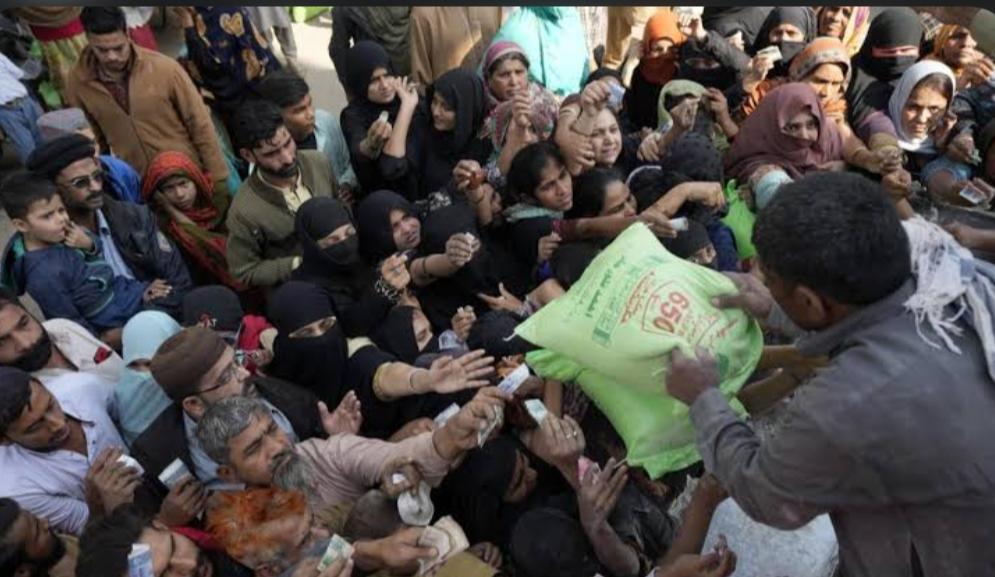On the first day of Ramadan, a stampede broke out in Charsadda, Pakistan, as hundreds of people gathered for free flour handouts. Nine people were trampled, one losing their life and eight others injured. The government had set up hundreds of distribution points to provide essential food items for low-income families registered under the scheme. However, the country’s finances have been struggling due to years of financial mismanagement, political instability, a global energy crisis, and devastating floods in recent years. Inflation is at a nearly 50-year high, and Pakistan is in debt and needs to introduce brutal tax and utility price increases to unlock another tranche of a $6.5 billion IMF bailout and avoid defaulting.
The tragedy highlights the dire economic situation in Pakistan, with people risking their lives to get access to basic necessities. The government’s handout scheme, while providing temporary relief, is not a sustainable solution to the country’s economic problems. Tough decisions need to be made to address the root causes of the crisis, including implementing structural reforms, curbing corruption, and improving tax collection. The government must also prioritize investment in infrastructure, education, and healthcare to create jobs and improve all citizens’ living standards.
It is important for the international community to support Pakistan’s efforts to stabilize its economy, as a collapse could have devastating consequences for the region and beyond. The IMF, World Bank, and other institutions must work with Pakistan to find a sustainable path forward that balances the needs of the people with the country’s financial obligations. Ultimately, a stable and prosperous Pakistan is in everyone’s interest, and it is up to the government and its partners to make it a reality.


